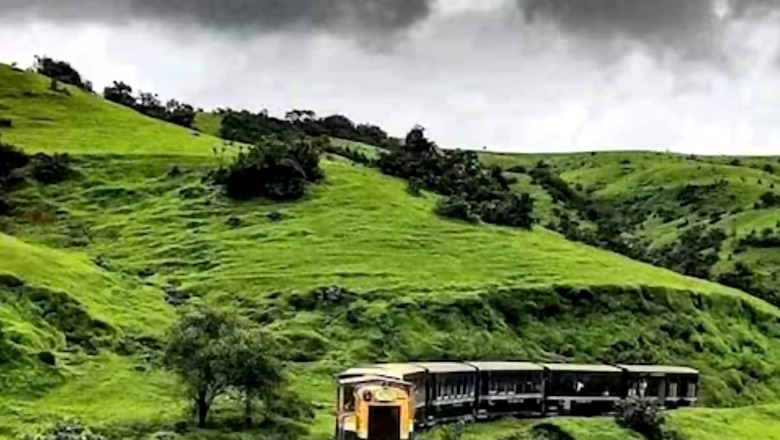
views
In today’s world, tourism has evolved from being a mere leisure activity to a powerful tool for cultural exchange. As more people travel with the desire to immerse themselves in the customs, traditions, and heritage of the places they visit, tourism is playing a significant role in fostering intercultural understanding. This shift toward cultural immersion helps close cultural barriers, allowing travelers and locals to connect on deeper, more meaningful levels.
Cultural Immersion and Genuine Connections
Manuj Sawhney, General Manager, Hyatt Centric, Hebbal Bengaluru, highlights how today’s travelers are no longer content with surface-level sightseeing. “Travellers are interested in understanding the history, traditions, and way of life that shape the communities they visit,” says Sawhney. “At Hyatt Centric, we focus on building genuine connections with our guests, giving them the opportunity to engage with our culture directly.” This cultural immersion extends beyond just sightseeing; it includes learning local languages, engaging with local customs, and even participating in traditional activities. As Sawhney puts it, something as simple as sharing a meal allows travelers to connect with the essence of a place. Every dish carries the stories and heritage of a region, fostering a deep connection with the land and its people.
The Power of Local Experiences
Vishal Vincent Tony, Managing Director, Ayatana Hospitality, believes that travel broadens perspectives and deepens cultural appreciation. “Tourism plays a vital role in bridging gaps in cultural understanding by highlighting unique practices and celebrations of specific communities,” he explains. At Ayatana, guests are encouraged to immerse themselves in local traditions, from participating in cultural greetings to appreciating local art forms like the Toda embroidery incorporated into the decor at Ayatana’s Ooty property. “By participating in these activities, guests form a genuine connection and deeper understanding of the local culture,” Tony adds. Such immersive experiences not only enrich the traveler’s understanding of the destination but also foster respect and empathy for different ways of life.
Festive Experiences and Cultural Celebrations
For Aryavir Kumar, Managing Director of The Clarks Hotels & Resorts, the festive season presents an ideal opportunity to showcase cultural richness. “As the festive season approaches, we offer travellers unique experiences at our most sought-after destinations,” Kumar shares. From the historic allure of Agra to mountain retreats in Manali and Shimla, The Clarks Hotels & Resorts curate packages that immerse guests in the local festive spirit. “Travellers are looking for immersive experiences, and our packages reflect this demand—whether through themed celebrations, gourmet dining, or cultural events,” Kumar notes. With a 15% increase in early bookings, it is evident that travelers are increasingly seeking not just luxury accommodations but opportunities to engage with the culture of the regions they visit. Kumar emphasizes the importance of offbeat destinations, where visitors can experience local life away from typical tourist trails. By providing tailored experiences in lesser-known locations like Palampur and Dalhousie, The Clarks Hotels & Resorts contribute to a more connected and culturally enriched travel experience.
Breaking Down Barriers Through Authentic Encounters
Manoj Sihag, Director, Echor Hotels Pvt Ltd., shares a similar philosophy. At Echor Hotels, located in destinations such as Jibhi, Spiti, and Kalpa, the focus is on offering guests an authentic experience of local life. “We provide immersive experiences that allow travelers to connect deeply with the local culture, from Himachali cuisine to traditional music and dance,” Sihag explains. By fostering mutual respect and understanding, these experiences help break down cultural barriers. Sihag believes that when tourists engage with the local way of life, they gain a greater appreciation for cultural diversity while promoting sustainable tourism.
Tourism as a Catalyst for Cultural Exchange
Across the hospitality industry, there is a shared belief that tourism has the potential to foster cultural exchange and mutual respect. While tourism has the power to bring cultures together, it must be approached with responsibility. Sawhney of Hyatt Centric warns that if not managed carefully, tourism can lead to the commodification of cultures and the erosion of local traditions. Therefore, hoteliers and tourism providers must prioritize sustainability and authenticity, ensuring that tourism serves as a bridge rather than a barrier between cultures.
Ultimately, tourism is a powerful tool for closing cultural divides. By encouraging travelers to immerse themselves in local traditions, cuisine, and experiences, hotels like Hyatt Centric, Ayatana Hospitality, The Clarks Hotels & Resorts, and Echor Hotels are creating opportunities for genuine connection. In doing so, they are contributing to a more globally connected, culturally enriched world—one where tourism not only supports local economies but also promotes empathy, understanding, and shared appreciation for the diverse cultures that make up our planet.




















Comments
0 comment